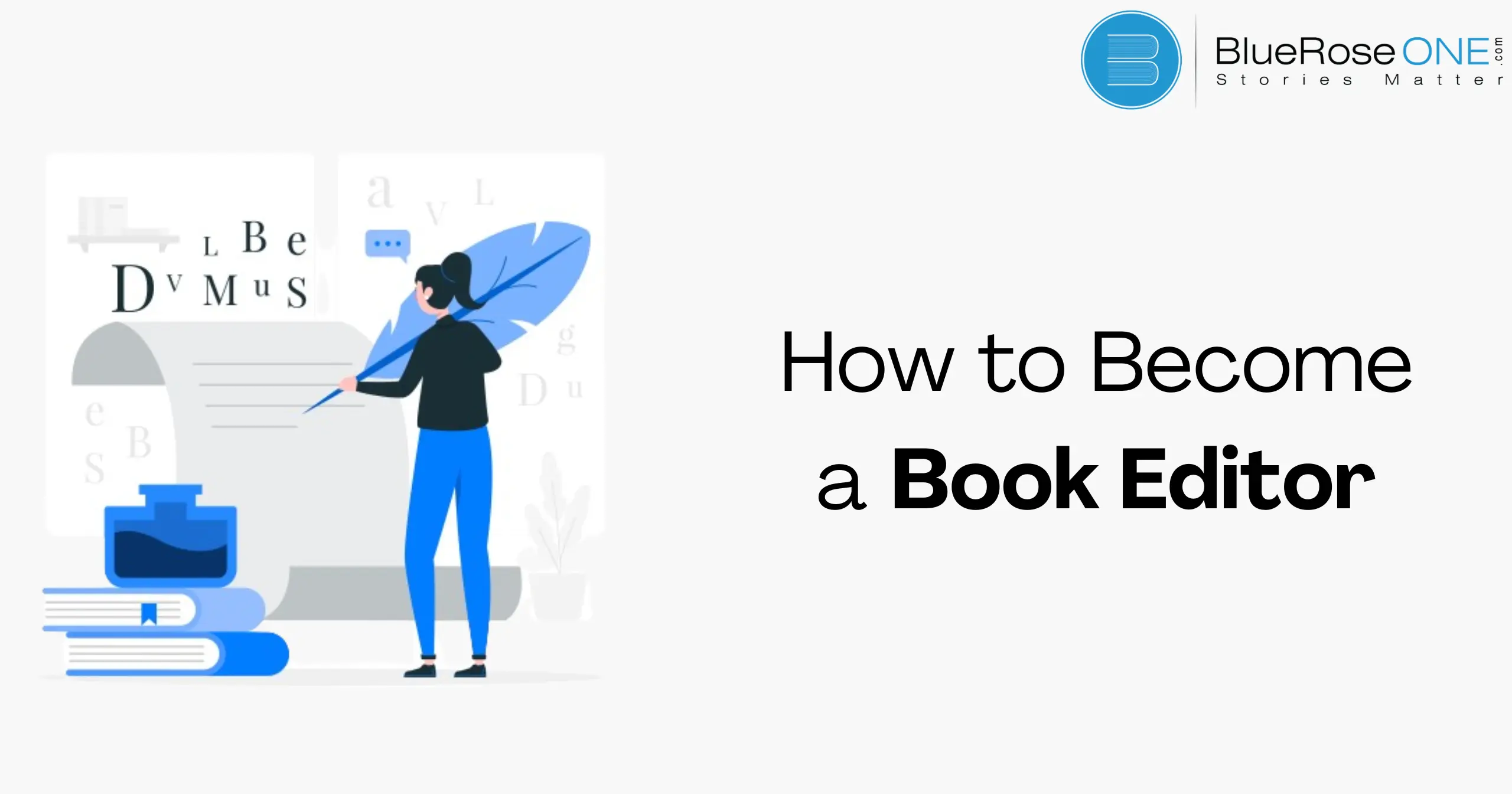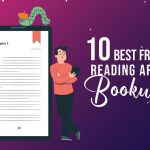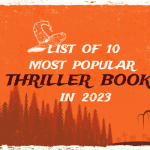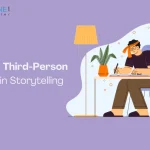Ever wonder who crafts the novels we read into well-crafted works of art? That’s what editors of books do! They are essential to the publishing industry because they make sure that every book is readable, interesting, and free of errors. A career as a book editor can be ideal for you if you have an eye for detail and are passionate about reading. Now let’s explore the procedures you must follow in order to work as a book editor.
Understand the Role of a Book Editor
A book editor is responsible for reviewing and improving manuscripts. They work closely with authors to enhance the structure, content, and language of a book.
Their goal is to make the text more readable and engaging for the target audience. This involves correcting grammatical errors, ensuring consistency, and sometimes even restructuring parts of the manuscript.
Different Types of Book Editors
Developmental Editors
Developmental editors focus on the big picture of a manuscript, helping authors shape their stories and structure. They work on plot development, character arcs, pacing, and overall coherence.
Unlike other types of editors, developmental editors often engage with authors early in the writing process. Their goal is to ensure the book’s content is engaging and logically organized, making it a crucial step for any aspiring book editor aiming to master the craft.
Copy Editors
In the book editing process, copy editors are quite important. They make sure that the style and tone are consistent while concentrating on fixing spelling, grammatical, and punctuation mistakes.
Their meticulous attention to detail results in a polished and polished copy that is easier to read and understand. Copy editors improve the book’s overall quality and reader appeal by attending to these details. Learning the craft of copy editing is frequently the first step towards becoming a competent book editor.
Proofreaders
Proofreaders are a crucial type of book editor. Their primary role is to review the final draft of a manuscript for spelling, grammar, punctuation, and formatting errors.
Unlike other editors, proofreaders focus on the surface-level details to ensure the book is polished and error-free before publication. This meticulous attention to detail helps maintain the book’s professional quality and readability, making proofreaders an essential part of the book editing process.
Skills Required to Become a Book Editor
Attention to Detail
Attention to detail is crucial for a book editor. It involves catching grammar mistakes, spelling errors, and inconsistencies in the text. A keen eye ensures the manuscript is polished and professional, enhancing the reader’s experience.
Being meticulous also means understanding the author’s voice and style, ensuring the edits align with their vision. This skill helps a book editor maintain the integrity of the work while improving its clarity and readability.
Strong Grasp of Language and Grammar
For a book editor, having a solid command of language and grammar is crucial. This ability makes the material more entertaining for readers by guaranteeing that it is clear, cohesive, and error-free.
An editor of books must be able to identify and fix errors in grammar, punctuation, and sentence construction. The book editor can preserve grammatical integrity while bringing out the author’s voice through skillful use of stylistic nuances and linguistic norms. This knowledge is essential to writing polished, business-like texts.
Excellent Communication Skills
Good communication skills are necessary to succeed as a book editor. An editor of books has to make sure that authors receive comments in an understandable and useful way.
Editors frequently need to discuss corrections and provide clarification, thus this covers both written and verbal contact. A positive working connection with authors is fostered by effective communication, which facilitates a more efficient and effective editing process.
Time Management and Organizational Skills
For those who want to work as book editors, time management and organizing abilities are crucial. You must effectively manage several projects, deadlines, and responsibilities when working as a book editor.
You can prioritize editing projects, set aside enough time for in-depth reviews, and fulfill publication deadlines when you practice effective time management. Having organizational abilities makes it easier to keep track of changes, keep workflows organized, and guarantee that edited manuscripts are coherent and clear.
Book editors can become more productive, produce better work, and build a solid reputation for dependability in the publishing sector by learning these skills.
Educational Background and Training
Relevant Degrees and Certifications
Obtaining the necessary degrees and certifications is essential to work as a book editor. A bachelor’s degree in communications, journalism, English, or a similar discipline offers a foundation in language and writing.
A master’s degree in editing, publishing, or creative writing is a common path taken by editors who want to enhance their education and gain a deeper understanding of industry standards and editorial procedures.
Credibility and competence in the field of book editing can also be shown by certifications from associations such as the Editorial Freelancers Association (EFA) or the American Society of Journalists and Authors (ASJA). These credentials equip editors to proofread manuscripts efficiently and guarantee publications of the highest value.
Workshops and Seminars
Workshops and seminars are essential when it comes to providing prospective book editors with the necessary training and educational background.
These workshops provide useful insights into a range of editing topics, including style, grammar, document assessment, and publication trends. By taking part in seminars, aspiring editors can hone their craft, remain current with industry norms, and expand their professional network within the publishing community.
The practical activities and knowledgeable direction offered in these environments are priceless for developing the editorial grace and critical eye needed to succeed in the book editing profession.
Gaining Experience
Internships and Entry-Level Positions
An internship or an entry-level job are frequently the first steps towards gaining experience as a book editor. These positions offer practical chances to pick up editing skills and obtain knowledge about the publishing sector.
Through internships, prospective book editors can gain practical experience under seasoned professionals, enhancing their abilities in manuscript assessment, proofreading, and style adherence.
These abilities are furthered in entry-level jobs like proofreading and editorial assistants, which also expose employees to a variety of genres and publishing procedures. Aspiring book editors must establish a strong foundation through internships and entry-level positions in order to progress in their careers.
Freelance Editing
For those who want to work as independent book editors, experience is essential. To begin developing a portfolio, start by providing your skills to friends or nearby writers. To obtain real-world experience and industry knowledge, think about volunteering for editing projects or taking an internship.
Participate in online groups and platforms where writers are looking for editors, and ask for feedback on a regular basis to enhance your editing skills.
Attending writing seminars and establishing your network with other editors may also be very beneficial for honing your skills and establishing your credibility as a capable book editor.
Building a Portfolio
Aspiring book editors must develop a portfolio. Volunteering for local literary publications or offering to edit friends’ manuscripts are good ways to start gaining expertise.
This practical exercise sharpens editing techniques and presents your expertise to prospective employers or clients. Make a digital portfolio that showcases your greatest work and demonstrates your editing skills using before and after shots.
Building credibility and drawing in future editing projects can also be accomplished by networking with writers, joining editing organizations, and looking for freelancing opportunities.
Developing a Specialization
Choosing a Genre or Niche
Selecting a genre or speciality is essential if you want to work as a book editor. By specializing, editors can gain in-depth knowledge and proficiency in particular genres or topics, which improves their capacity to offer incisive criticism and efficiently edit manuscripts.
A specialization like literary fiction, young adult novels, or nonfiction like self-help books can help book editors focus their abilities and establish a reputation in that specific market sector.
This area of expertise helps them draw in clients and shows that they are competent and credible editors in the genre that they have selected.
Building Expertise in a Specific Area
Acquiring proficiency as a book editor requires both specialized education and real-world publishing industry experience. Aspiring professionals should first acquire a solid understanding of editorial concepts and practices in order to become competent book editors.
This entails becoming proficient in style manuals, grammar, and manuscript layout. Developing a specialization also calls for in-depth familiarity with a variety of genres and writing philosophies, as well as proficiency in offering helpful criticism and improving the clarity of manuscripts.
To hone these abilities and build credibility in the book editing industry, it is imperative to participate in workshops, courses, and practical editing projects that provide ongoing learning opportunities.
Benefits of Specialization
There are many advantages to specializing in book editing. Editors may increase their proficiency and effectiveness by concentrating on a certain genre or style of writing, such as academic texts, fiction, or nonfiction.
Editors who specialize are better able to refine manuscripts because they have a deeper understanding of the subtleties of language, style, and audience expectations within their particular area.
This proficiency not only improves the quality of their output but also increases their legitimacy and attractiveness to writers in need of customized editing services.
Tools and Resources for Book Editors
Software and Technology
Technology and software are essential for improving accuracy and efficiency in the field of book editing. In order to assure polished manuscripts, book editors use a range of tools, such as grammar and style checkers like Grammarly or ProWritingAid, to expedite their work.
Collaborative editing and manuscript organization are also made easier by editing programmes like Scrivener and Microsoft Word’s Track Changes function. These resources enable book editors to uphold professionalism, coherence, and clarity throughout the editing process—essential skills for prospective professionals wishing to become book editors.
Style Guides and Reference Materials
Reference materials and style guides are invaluable resources when it comes to book editing. Style guides, like the AP Stylebook or the Chicago Manual of Style, give editors uniform guidelines for punctuation, grammar, and formatting.
These guidelines improve readability and professionalism by ensuring that manuscripts follow industry standards. Throughout the editing process, reference materials such as dictionaries and specialized guides assist editors in confirming facts, elaborating on definitions, and maintaining correctness.
Knowing how to use these tools not only makes editing easier, but it also develops the kind of knowledge that prospective book editors need.
Online Communities and Forums
Online networks and forums are essential when it comes to book editors’ tools and resources. These online forums act as virtual gathering places for aspiring and seasoned book editors to interact, discuss useful materials, and ask for assistance.
They provide a plethora of knowledge about employment options, industry trends, and editing skills. Participating in these forums can help one become a better book editor by developing professional networks, improving one’s skills, and staying current with the most recent advancements in the field.
Freelance vs. In-House Editing
Pros and Cons of Freelancing
When considering a career as a book editor, deciding between freelance and in-house roles is crucial. Freelance editors enjoy flexibility in their schedules and the variety of projects they can choose from, which can lead to a higher income potential.
However, freelancing can also mean irregular work and the need for self-promotion. In contrast, in-house editors often benefit from stable pay and professional development opportunities within a publishing house or agency, but they may have less control over their workload and schedules.
Pros and Cons of Working In-House
Selecting between freelance and in-house work is essential when thinking about a career as a book editor. Editors working for themselves benefit from having flexible schedules and a wide range of tasks to pick from, which can increase their earning potential.
Freelancing, however, can also result in sporadic work and the requirement for self-promotion. On the other hand, in-house editors at publishing houses or agencies might have less control over their workload and schedules, but they also frequently benefit from steady compensation and possibilities for professional growth.
Making the Right Choice for You
Weighing the benefits and drawbacks of freelancing is necessary while deciding whether to become a book editor. You can choose your assignments and work schedule more freely when you work as a freelance book editor, which might improve your work-life balance.
Furthermore, freelancers frequently get the chance to work with a range of clients and genres, accumulating a broad range of experience. Freelancing can be unpredictable, though, as it requires self-control and has a variable income. For those hoping to succeed as freelance book editors, it is imperative that they comprehend these elements.
Conclusion
Becoming a book editor is a rewarding journey that involves developing specific skills, gaining experience, and building strong professional relationships. It’s a career that not only demands a keen eye for detail and a passion for language but also offers the satisfaction of helping authors bring their stories to life.
















